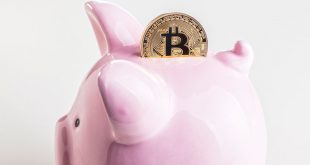With Islamic finance expected to see aggressive growth last year, Malaysia is already setting in motion plans to become a major Islamic financial hub in the world. The government has recently unveiled plans to transform Kuala Lumpur into a financial center to attract international investors and promote trade. Through investments in the construction of 11 new buildings, the capital will be home to a new financial district designed to keep up with regional financial powerhouses Singapore, and Hong Kong.
Malaysia is currently ranked 22nd in the Global Financial Centers Index. The country is included in Asia’s Top 10 Financial Centers, wherein Singapore and Hong Kong are the frontrunners to take on their Western counterparts over the next decade. Shanghai and Shenzhen are also top contenders.
Kuala Lumpur aims to increase its chances of becoming a global financial superpower with the Tun Razak Exchange (TRX) project. The government is expected to capitalize on one of Malaysia’s economic strengths, which is the fast-growing Islamic financing marketplace. TRX, under which the financial district dubbed as “Asia’s Canary Wharf” will be developed, should lay the foundation for Kuala Lumpur’s goal to compete with international financial hubs, starting from its Asian neighbours.
Expected Boom in Islamic Finance
Islamic finance has grown particularly strong in the cities of Dubai and London, according to the AlHuda Centre of Islamic Banking and Economics (CIBE). The institution projects Islamic assets to exceed $2 trillion in 2014. Growing interest in Islamic finance among countries in North Africa, like Libya, Morocco, Senegal, and Tunisia, will drive the growth. There is also an increased uptake in Europe and the UK.
Islamic bonds—sukuk—will rise in popularity, to account for about 16% of the total industry, according to CIBE chief executive Zubair Mughal. Islamic banking is estimated to make up for 78% of the industry while Islamic funds or takaful will hold 4%. Islamic microfinance, meanwhile, will make up 1% of global Islamic financing.
Demand for Islamic products is expected to continue going on an upward trend this year, partly supported by a growing Muslim population. To non-Muslim investors, Islamic investment products are attractive because of the level of risk—low to zero—they present. The industry has also become easier to track with its inclusion in international rating systems like Dow Jones, FISE, S&P, and MSCI.
Islamic finance operates on concepts of shared responsibility and thoughtful decision-making. It also promotes socially responsible investments, thus becoming a highly viable option for governments and private organizations looking to make green investments.
Challenges for Malaysia
The TRX project is in line with the government’s goal to become a high-income economy by 2020. With the project already being rolled out, Malaysia is hoping to invite more foreign investments to speed up its economic growth, leveraging on its status as a solid Islamic financial center. There are also plans to offer tax breaks and incentives for businesses who will choose to operate in the new financial district.
Malaysia could attract major players away from its more established competitors if it finds a solution to some of its weaknesses, one being the apparent lack of educated English-speaking workers in Islamic finance. Other challenges Kuala Lumpur needs to overcome include the need to outperform its Asian rivals in several area such as ease of doing business, the employability of new graduates, relations with international markets, and general competitiveness.
About the author:
Gilbert Bermudez is a contributor for CompareHero, a Malaysian comparison website that focus on comparing local financial services for free.
 Invest Smart Asset Protection and Investment News
Invest Smart Asset Protection and Investment News




